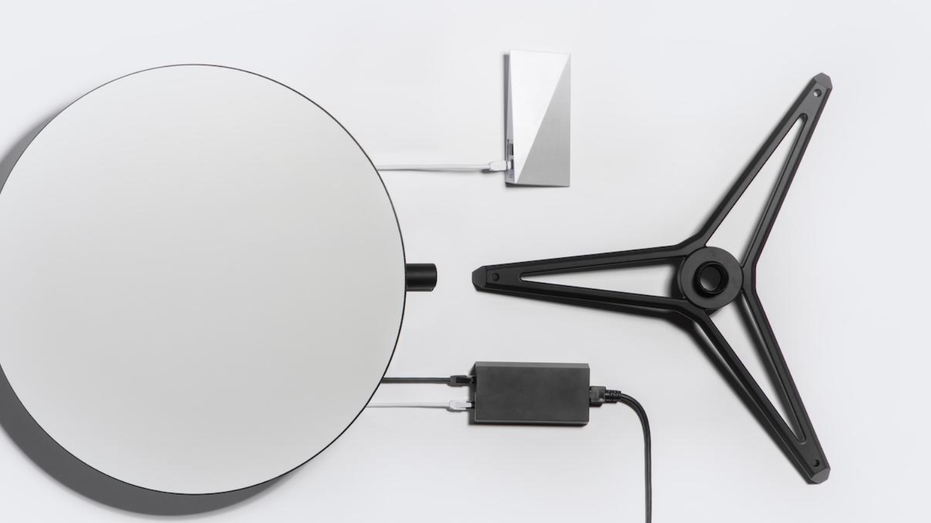SpaceX launch leaves behind colorful cloud effect over Florida skies
Sunday’s mission marks a record ninth flight and landing for SpaceX's Falcon 9 booster
SpaceX's successful launch of its 22nd batch of 60 Starlink satellites left behind a colorful cloud effect on Sunday morning.
SPACEX SUCCESSFULLY LAUNCHES STARLINK SATELLITES, LANDS IN SEVENTH 2021 MISSION
According to the National Weather Service's Melbourne divison, the mystic color palette was created by a combination of noctilucent and cirrus clouds and the dawn light.
Noctilucent clouds are formed as a result of ice crystals created by water vapor, meteor dust and extremely cold temperatures of -215 degrees Fahrenheit, according to NASA.
The icy clouds, shining bright blue and white, hover 50 miles overhead in a layer of the atmosphere called the mesosphere. They are only visible when illuminated by the Sun from below the horizon. They first appear in summer — around mid-May in the Northern Hemisphere and mid-November in the Southern — when the mesosphere is most humid, with the season’s heat lofting moisture up to the sky.
Noctilucent clouds, which are also reffered to as polar mesospheric clouds, help scientists better understand the mesosphere and how it’s connected to the rest of the atmosphere, weather and climate.
GET FOX BUSINESS ON THE GO BY CLICKING HERE
Sunday’s mission marks a record ninth flight and landing for SpaceX's Falcon 9 booster, the aerospace company said.
Starlink, the company's high speed internet service which aims to provide global coverage where access has been unreliable or completely unavailable, has launched over 1,000 satellites into orbit and has over 10,000 users in the United States and abroad since its "Better Than Nothing" beta launched domestically and internationally in October.
Preorders for Starlink's service became available in February for $99. The company’s website emphasizes that the preorders are "fully refundable," but notes that “placing a deposit does not guarantee service.” The pre-orders will be fulfilled on a first-come, first-serve basis. For some locations entered on the website, SpaceX says coverage won’t be available until “mid to late 2021,” while other areas won't have service available until 2022.

Photo courtesy of Starlink
The full Starlink kit costs $499 and includes a mountable dish antenna, Wi-Fi router, and power supply. The service will be offered first in the U.S., Canada and the U.K. Musk teased last month that Starlink internet speeds will double to about 300 megabits per second later this year, while latency -- the time it takes to send data from one point to the next -- will drop to about 20 milliseconds.
In a recent filing with the FCC, SpaceX applied for a blanket license that would potentially allow the company to connect Starlink to moving vehicles, ships and aicraft.
CLICK HERE TO READ MORE ON FOX BUSINESS
Musk said in February that Starlink could potentially launch an initial public offering once SpaceX can "predict cash flow reasonably well."
"SpaceX needs to pass through a deep chasm of negative cash flow over the next year or so to make Starlink financially viable. Every new satellite constellation in history has gone bankrupt. We hope to be the first that does not," Musk said. "Starlink is a staggeringly difficult technical & economic endeavor. However, if we don’t fail, the cost to end users will improve every year."
SpaceX recently completed a funding round of $850 million at about $419.99 per share, sending the aerospace company's valuation skyrocketing roughly 60% to about $74 billion, according to reports. The company previously raised $1.9 billion at a valuation of $46 billion in August, its largest funding round to date.




















